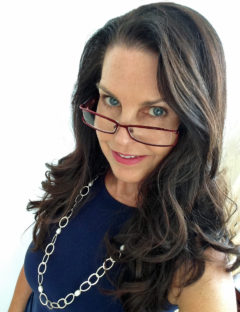 Spring 2015
Spring 2015
Children first learn about the world around them balanced on the knee of a parent, who knows the child best. With this perspective in mind, parents should seek a safe, loving, interactive preschool that ideally suits their expectations and their child’s needs.
Ask the Right Questions
Children may spend many of their best and brightest hours in preschool. In order to choose the right one, Romana Syed of Cypress Kids Learning Center suggests these questions and answers, “How are classes structured? Classrooms should be child-centered to provide a comfortable environment that tends to the needs of each individual child. Are the teachers qualified? Teachers should be Child Development Associates.”
Sarah Prause of The Goddard School Cypress tells parents that selecting your child’s first school may be one of the most important decisions you have to make and asks, “Will you receive a daily report of your child’s activities? Are the teachers CPR and first aid certified?” Young children need a great deal of individual attention. “Ask about teacher/student ratios and the role of teaching assistants and aides in the classroom,” offers Steve Sandweiss of Building Rainbows Day School.
Referrals from friends are also a great way to narrow the school search. “They will give you true, unbiased opinions of their experiences,” says Diane Miller at Head Start to Reading, “And when observing, look for teachers who are on the floor with the children playing, directing, and teaching.” Explore licenses, accreditation, and school websites, but touring the school is a must. Patricia Bushnell, director at Children’s Lighthouse advises, “Attend an observation at least twice; your child must be comfortable there.”
Balance Play and Learning
Programs should have a good balance of play, guided teacher interactions, and overall growth that best suits your child. Starla Fitch at Primrose School of Copperfield insists, “Parents should look for a warm, nurturing environment that will help create a love for learning in their child.” Primrose employs Balanced Learning® Philosophy, based on the research of experts such as Erickson, Piaget, Montessori and more.
Christ the Redeemer Catholic School Principal Betty Sierra emphasizes, “A preschool that offers a good mix will have a center-based program where children move from each activity with teacher guidance.” The school uses Frog Street and STEM – science, engineering, technology and math – based curriculum. Research has shown that children learn best when they are having fun, so Prause says, “A quality education program should have a play-based curriculum that allows for child-centered learning and teachable moments.” Goddard applies F.L.EX.® Learning Program, which considers the whole child, including motor, cognitive, and socio-emotional areas of development.
Striving for balance, Sandweiss says, “A child’s success in Kindergarten is much more dependent on their ability to control their emotions, to play with their peer group and to respect and listen to their teachers than it is on whether they are reading on the first day of Kindergarten.’” Rainbows Day School believes in learning through play, preparing kids academically as well as socially and emotionally. Schools vary widely in their approach to the common objective of a joyful learner, so feel free to be choosey.
Communication between School and Home
Bridging the gap between school and home is a partnership. Miller explains, “The education is based on a three-part team: the child, the teacher, and the parent,” and she suggests volunteering to interact on all levels. Jason Bone at Foundations Academy Towne Lake says, “Find out how the school handles discipline issues,” and suggests the school should have the same educational values as your family. Maintain consistency in the rules at home and school and ask for support when needed, Bushnell recommends. Schools have myriad resources and effective networks.
Syed confirms, “We believe that students do better when they know parents and teachers are united in their expectations. It is imperative to foster an environment in which each child’s curiosity and confidence is encouraged.” Cypress Kids Learning Center demonstrates this philosophy through a Montessori-style system.
All schools stress an “open door policy” towards parents, meaning they are always welcome. “Children have their greatest success when parents and schools partner,” says Fitch, ”A clear understanding of the school’s policies and teaching goals help parents to be an active partner in their child’s learning.” Several schools note that character development is a vital part of early education and constant communication fosters positive growth.
Prause sums up the school’s role, “A school should be like a community – it should have an open door policy and invite families to visit at any time, get involved in the school and attend special events to foster relationships with other families.” The right preschool offers a safe, happy place for your child to develop physically, emotionally, socially, and intellectually. The best fit offers the most potential for every child. CFM
Tips on Finding the Best Fit
- Assess parenting style to match with a program
- Research accreditations, licenses and referrals
- Tour schools during active times with your child
- Greet and ask questions of front desk, admin and staff
- Consider school teacher/child ratio and interactions
- Watch for happy, comfortable children engaging
- Learn discipline policies and program goals
- Inspect grounds for any safety concerns
